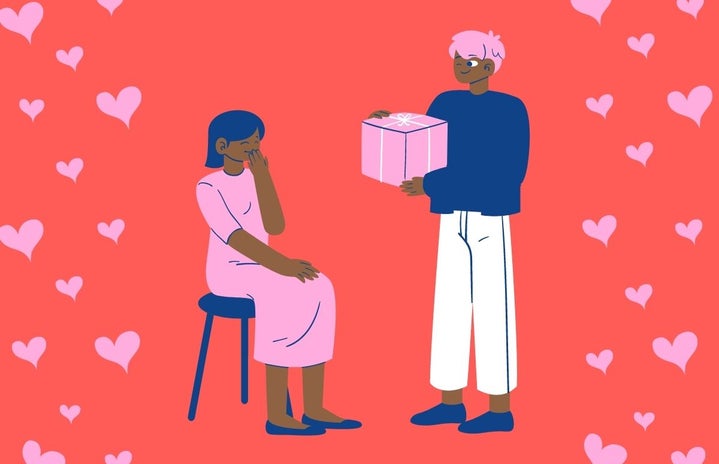Love languages can be great tools to figure out how to express our appreciation for those we love, as well as how we can engage in the most suitable self-care for ourselves. The concept of the 5 love languages was created by Dr. Gary Chapman and consists of physical touch, quality time, acts of service, receiving gifts, and words of affirmation. You can take this quiz to determine your love language.
On the flipside, love languages can also give some insight into some of the self-sabotaging behavior that we engage in– our loathe language. I came across this theory while scrolling on Tiktok and when I found a video by user @pookibearr.
- Acts of Service
If your love language is acts of service, you feel appreciated by loved ones when they do tasks and favors for you. Doing these sorts of tasks are a great way to perform self-care for yourself, which is why task avoidance or failing to complete tasks altogether can be your loathe language. This may include procrastination or opting to skip a daily routine.
- Gift Giving
If you have this love language, you feel valued when people in your life give you considerate gifts or tokens to let you know that they were thinking of you. Like all things, gifts from both others and from ourselves are good in moderation. On the other hand, your loathe language can be excessive shopping or impulse buying. If you are experiencing a cycle of buying items that bring you fleeting satisfaction before moving on to the next purchase, this could be a sign of excessive shopping.
- Physical Touch
Physical touch in the form of hugs, handholding, and kisses are quite intimate and relaxing ways to receive and give love to others. Ways that this love language can be flipped into a loathe language is through nail-biting, binge eating, substance abuse, and other forms of harm to one’s physical body.
- Quality Time
If you find going on outings or sitting in comfortable silence with friends and family as the optimal way of showing and receiving love, your love language is most likely quality time. Since quality time with others is a relaxing and fulfilling activity for you, isolation from others can serve the opposite effect. Isolation is not always a bad thing –it is important to recharge your social battery from time to time. However, if you are isolating yourself more than usual and feel no sense of fulfillment from doing so, this could be self-sabotaging behavior.
- Words of Affirmation
Your love language is words of affirmation if you show and prefer to receive love through verbal or written expressions of affection or praise. Perhaps you feel most loved when someone calls you a pet name or says “I love you” or “I’m proud of you.” Your loathe language probably involves self-deprecation by negatively talking about yourself. If thoughts such as “I am not good enough” have been frequent lately, you are most likely experiencing this form of self-sabotage.
Although the subversion of the 5 types of love languages into loathe languages are simply theories, your love language can be used as a form of self-care to combat signs of self-sabotaging behavior. You can refer to this article if you would like to learn the different ways that you can turn your love language into a form of self-care.


